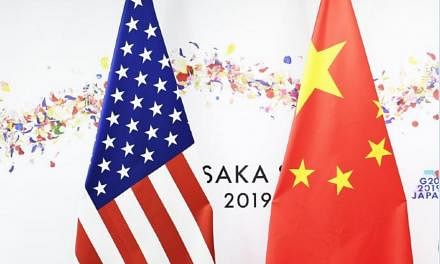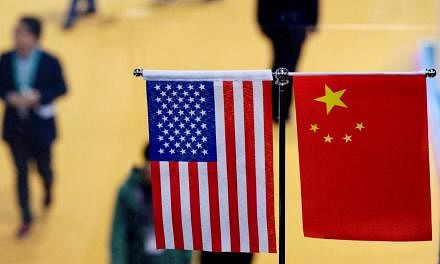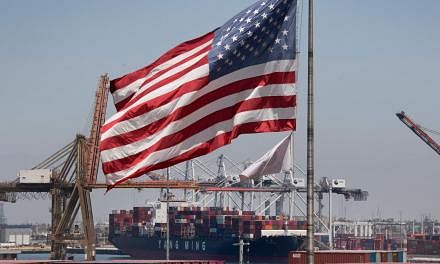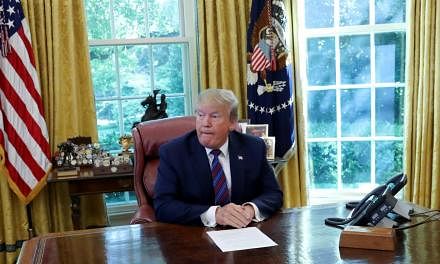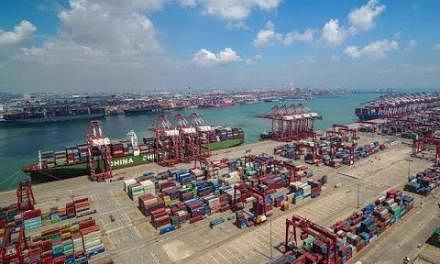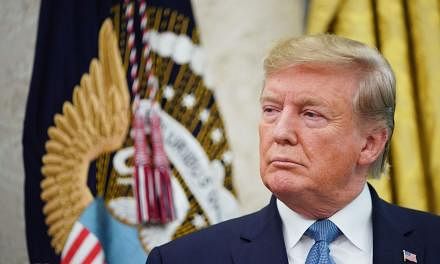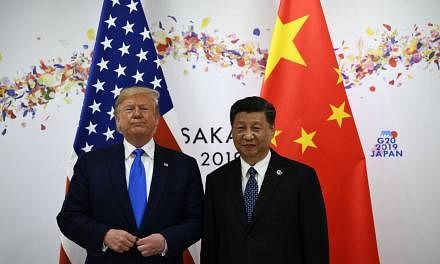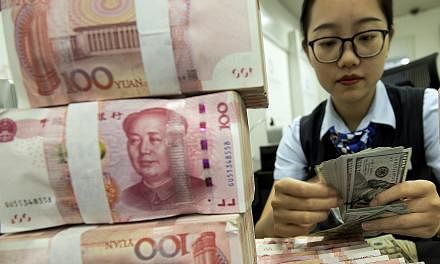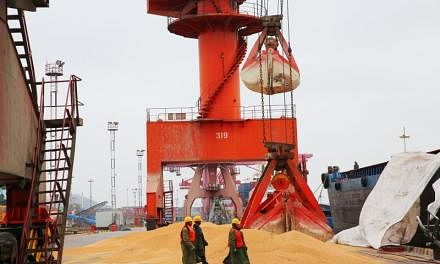ZHUHAI - In a world facing increasing protectionism, a game of survival of the fittest where the strong wipe out the weak and a zero-sum game may prevail for a short while but will not become mainstream, a senior Chinese official said in a veiled reference to the escalating trade tensions between China and the United States.
Mr Shen Haixiong, vice-minister of the publicity department of the Communist Party of China Central Committee, warned on Wednesday (Sept 19) that the world is "now at a crossroads" and must decide whether it will regress or embrace progress.
Without mentioning names, he said free trade, globalisation, open economies and the exchange of information and culture are now under attack as there are some who are adopting an increasingly protectionist stance.
Mr Shen, also president of the China Media Group, made the remarks at the opening ceremony of the 21st Century Maritime Silk Road China (Guangdong) International Communication Forum in Zhuhai city.
China and the US, the world's two largest economies, are ratcheting up their trade war.
Beijing on Tuesday added US$60 billion (S$82.3 billion) of American products to its import tariff list in retaliation for US President Donald Trump's planned levies on US$200 billion worth of Chinese goods.
Observers say the US wants to pressure China into making sweeping changes to its trade, technology transfer and high-tech industrial subsidy policies.
And Mr Trump has warned that retaliation by China would trigger tariffs on another US$267 billion of Chinese goods.
At the opening ceremony, organisers released a report on Guangdong enterprises going global and the province's role in President Xi Jinping's signature mammoth infrastructure project - the Belt and Road Initiative (BRI) - which is in its fifth year.
The report said in the first six months of the year, Guangdong's total import and export volume with countries in the BRI hit almost 729 billion Chinese yuan (S$145.6 billion), up 1.7 per cent from a year ago. This accounted for 22.5 per cent of the provincial total.
"Guangdong has established 90 enterprises and institutions in the countries along the Belt and Road, with an actual investment of US$220 million, a year-on-year increase of 21.7 per cent," it added.
Still, the project is now facing new challenges.
The huge differences in language, culture, business regulations and legal systems pose risks to international production capacity.
"For example, it is extremely difficult to explore the natural resources in some countries. They might have a fragile ecological environment, sensitive geopolitics and complex local forces. In addition, the political environments in some countries are unstable," the report said.
Other issues include the lack of financing and innovation in insurance products to meet the needs of investments.
On Thursday, Nobel laureate in Economics Thomas Sargent, a professor at New York University, is expected to make a keynote speech at the forum.
Singapore Press Holdings' head of Chinese Media Group Lee Huay Leng will share her thoughts on how China is perceived in pluralistic Singapore and Malaysia.
About 800 delegates are expected to join the three-day event, which will also address topics including opportunities in the Guangdong-Hong Kong-Macau Greater Bay Area, as well as science and technology innovation development in Guangdong.


